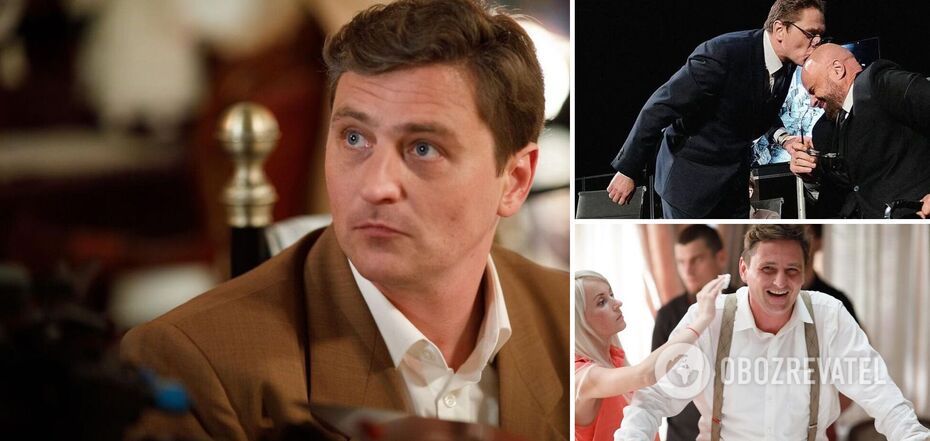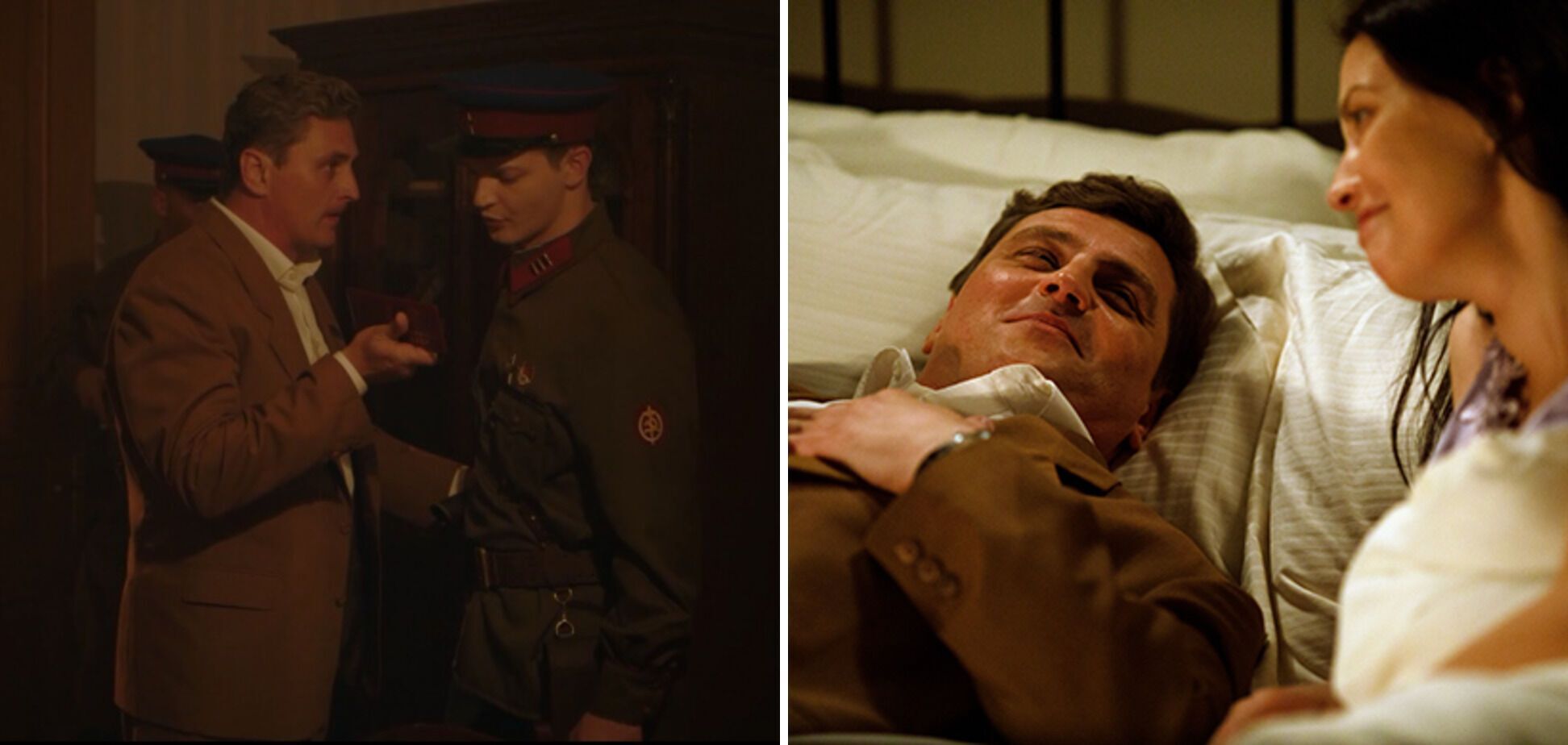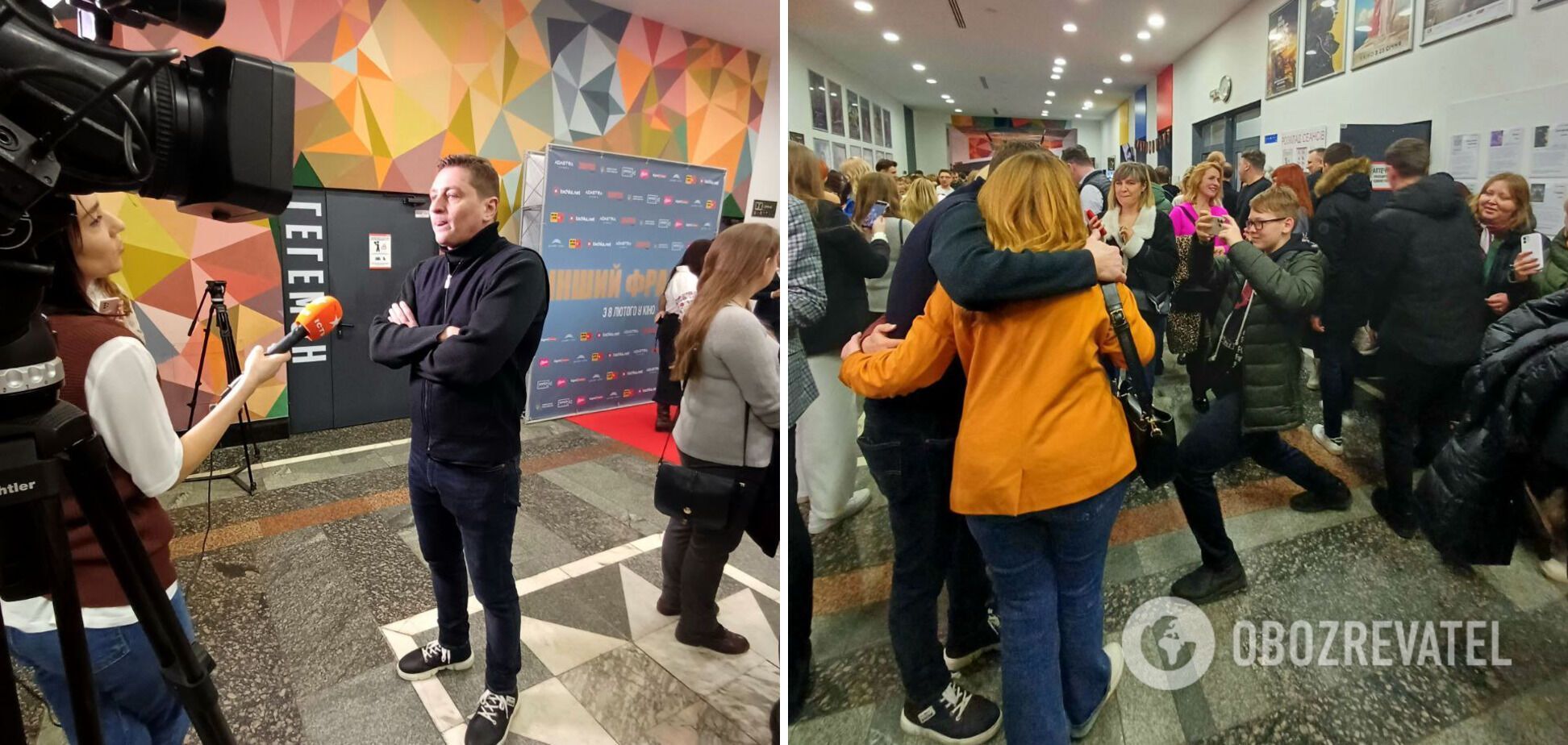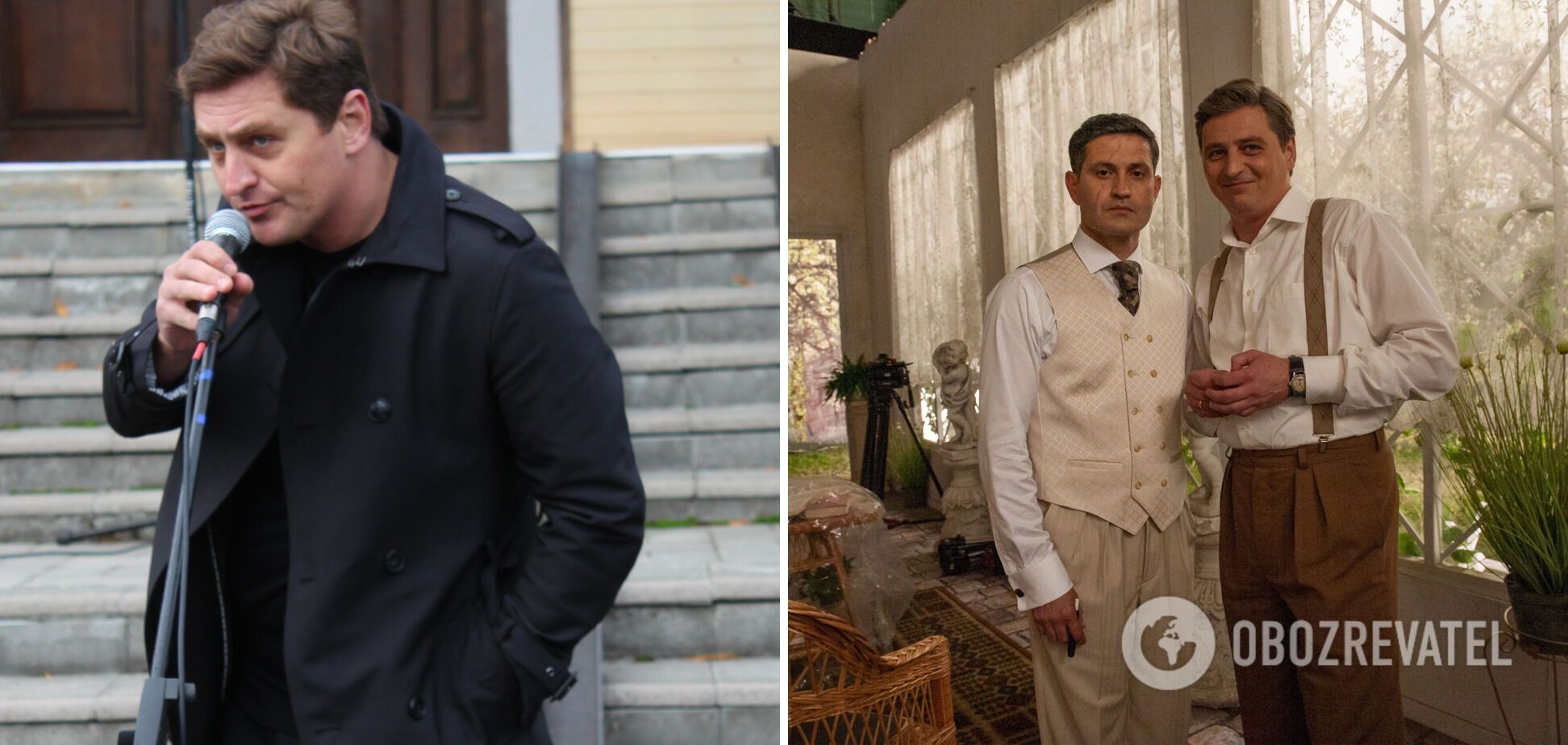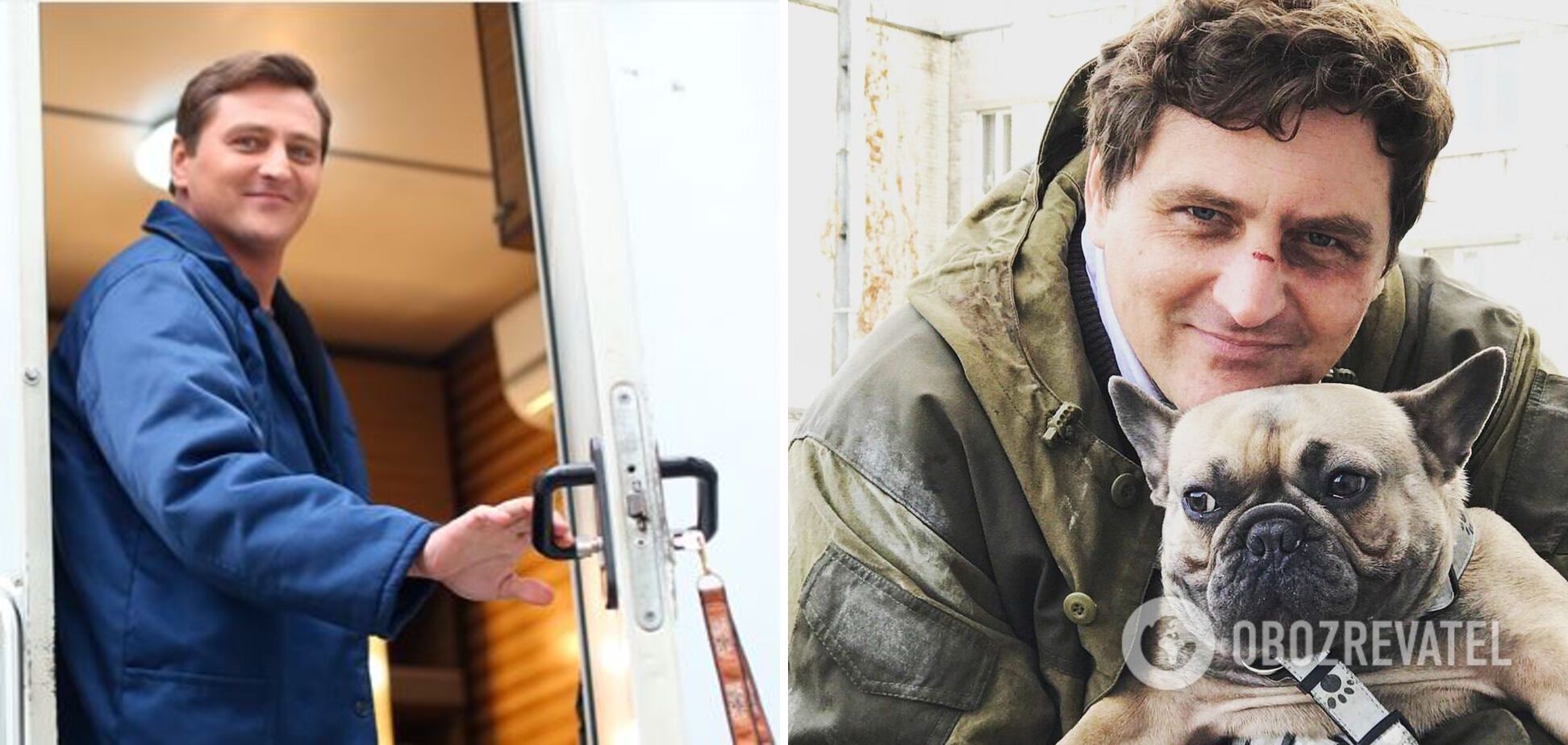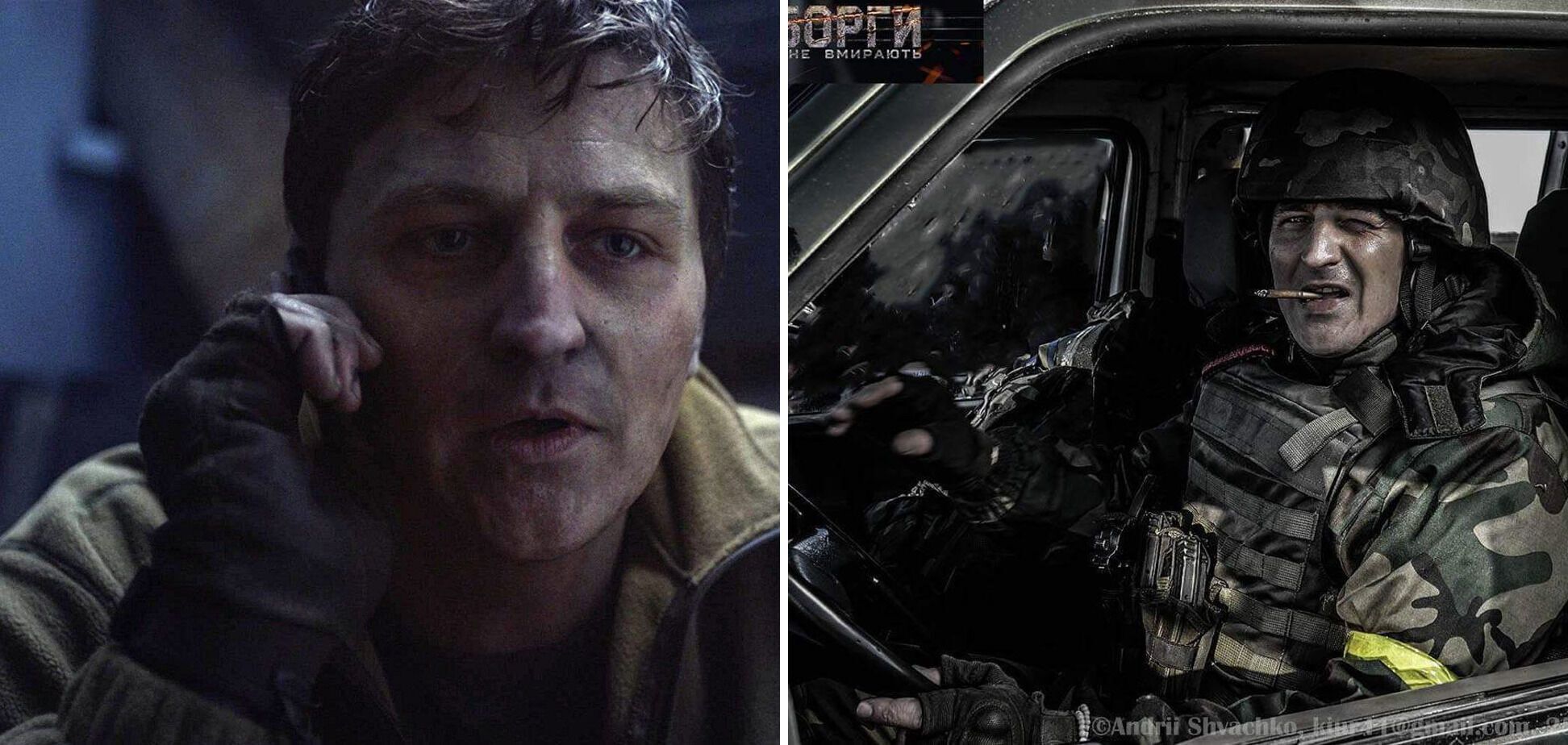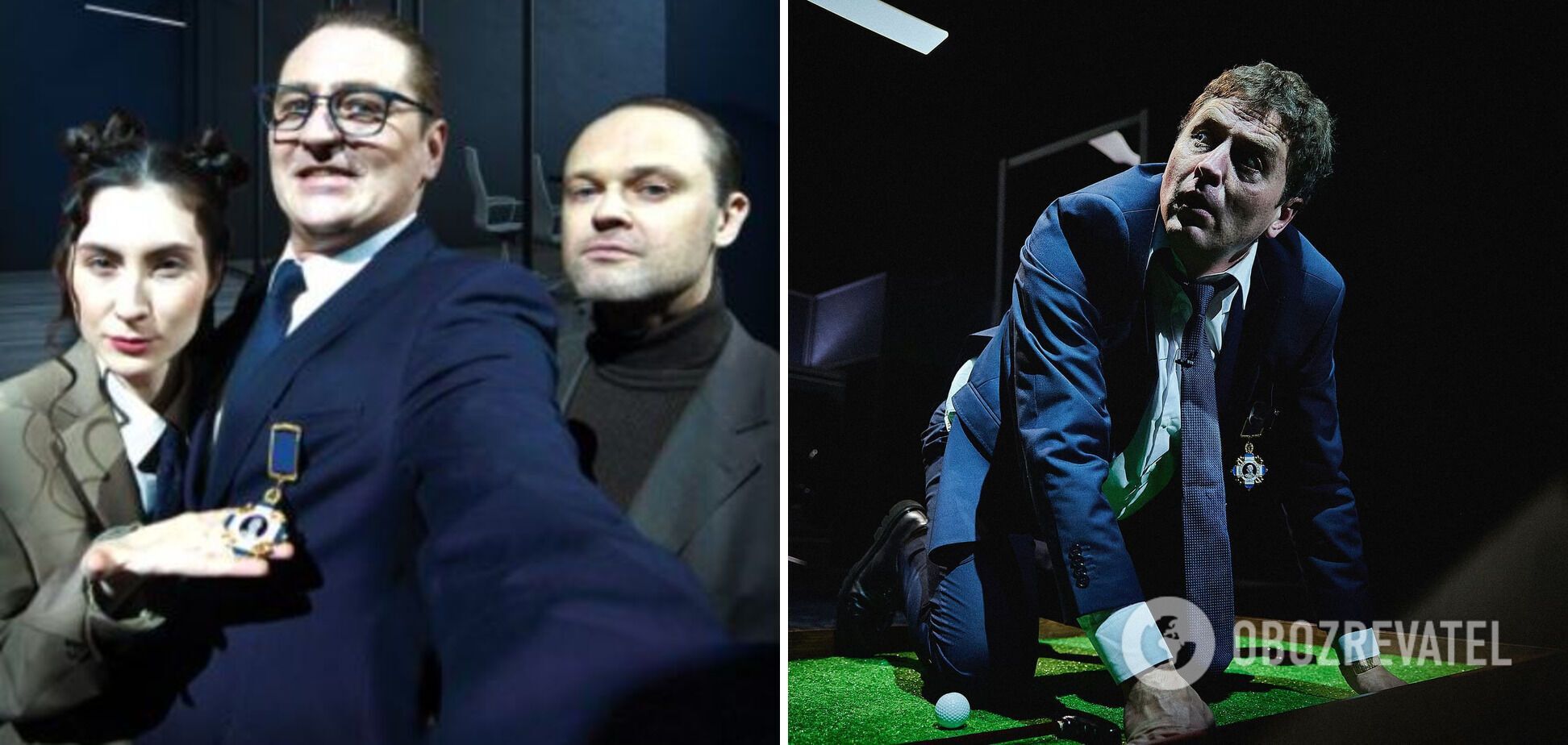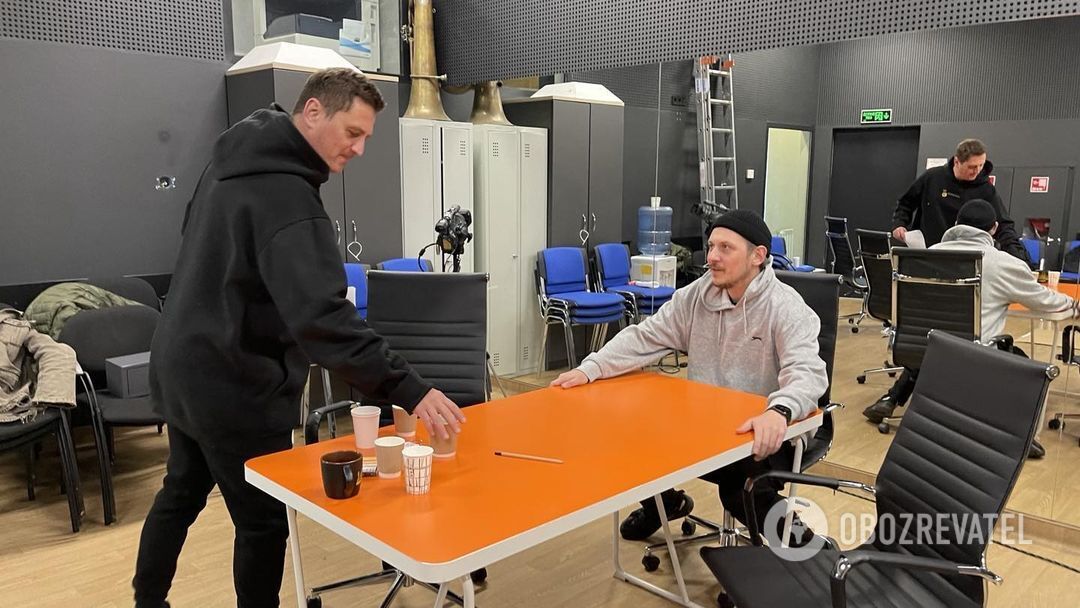Entertainment
"Why did they rush to change everything like a flash?" Viacheslav Dovzhenko on the belated steps of the authorities and the scandal with the name Zelenskyi in his play
Cyborgs star Viacheslav Dovzhenko plays the lead role in The Other Franko, which promises to be an extraordinary event in Ukrainian cinema. The historical drama will be released on the big screens on February 8.
OBOZ.UA talked to the actor during the pre-premiere screening of the film in Kyiv. Viacheslav Dovzhenko admitted why he has never seen Cyborgs, told us where Zelenskyy went from the play The Host, in which he plays the main role, and explained why his son Vasyl will watch The Other Franko instead of him at the premiere.
The Other Franko tells the story of the scientist and historical figure Petro Franko, the youngest son of the legendary Ukrainian writer. Petro Ivanovych was a talented inventor, co-founder of the Plast movement, and a writer. After the end of World War I (he served as a military pilot at the front), he became the founder of an aviation unit of the Galician Army. Later he was forced to compromise with the authorities to avoid repression. However, he did not stop his activities, which were later recognized as anti-Soviet. Fate gave Petro Franko only 51 years of age. The scientist was shot dead in 1941.
– Viacheslav, how do you feel about the opinion of some Ukrainians that now is not the time for feature films?
– I understand them to a certain extent. I recently gave an interview in which they mentioned the replacement of the symbols on the monumental sculpture in Kyiv called Motherland. Some Ukrainians were happy about it, while others criticized that it was not the right time and that a lot of money was spent on reconstruction. I understand both positions. But I have a question for our authorities: why has this symbolism not been changed since 1991? Why is it only now, when everything is so painful, that we are rushing like scalded to change everything? What should have been changed long ago in our minds, and most importantly, in the minds of the next generation?
I can say for sure that today, in the more than 30 years of independence, we have definitely missed several generations. They are not so Ukrainian-conscious. My eldest son Ivan is 20 years old. When he graduated from high school, only three students in his class spoke Ukrainian.
– In my daughter's class, who is about the same age, there are two of us - her and one other boy.
– So you understand perfectly well what I'm talking about. In 30 years, we have missed these generations. My youngest son Vasyl, who is 14 years old, is standing not far from us now. He is already more conscious, and his generation is like that. But why are we going so hard and long to get there? And what should we do? It seems to me that we have to work hard. As Ivan Franko wrote: "To work, to work, and to perish in work." This was his life credo. And it is our only way now.
– What did you know about Petro Franko when you took on this role?
– Practically nothing. I knew about Plast because it's impossible not to know if you're at least a little bit knowledgeable. But I knew nothing about scholarship, translations, or aviation. When I started to learn, I was impressed by absolutely everything. Getting to know this man, I was surprised because it was all him, and him, and him. And this is impressive. Another thing is that many questions arose. First of all, why is so little known about this historical figure to the general public?
I must say that this role has been played for quite a long time. The film was first presented at the Khmelnytsky Film Festival in 2021. It has reached the big screens only now, like some other Ukrainian films, because of the pandemic and the war. "After this role, I also had a lot of interesting things to do, for example, in The Word House, where I played Khvylovyi (a dramatic story about our writers who were gathered in one house to force them to create in the name of the party - Ed.) But the character of Petro Franko is very dear to me.
– Which one is the most precious?
– You can't say that, because it's like asking a father which of his children he loves more. All the characters you create are precious.
– Did you talk to any of Franko's relatives while working on the role?
– I had the opportunity to meet my hero's relatives when I was honored to be invited to the opening of the monument to Petro Franko in Nahuyevychi. And we talked to Kameniar's great-grandson for some time. And later he was told that this actor recreated the image of your grandfather. And after one of our conversations, he said to me: "You know, I would probably trust you to play him." I hope the audience will say the same. I do believe in it.
– How are you living now?
- Like everyone else, I'm worried about air raids every day, and even more about our future. My heart hurts for the occupied territories. I have no one there, but everything that is happening there is very close. And the only good thing about this horror that we are living through now is that I have started to appreciate every day. That's how it should be: to be afraid of losing the people around you, to love your loved ones because every day can be the last. To say to dear people: "I love you". Starting today, don't forget to do it every day.
At the beginning of the invasion, I, like most of my colleagues, thought that our profession might not exist anymore. My anxiety was exacerbated by the fact that I realized that I could do nothing else. And I don't know if I could ever reform, but I clearly realize that thanks to the audience, the faith in the actors is now returning that everything we do is necessary. Although I must admit that I still haven't felt that cinema has come to life and that everything will be fine. And no one here at the film's presentation will tell you that everything is fine. And no one knows what will happen tomorrow.
– How long have you been out of work since the start of the full-scale war?
– We started working about a year ago. And it can't be called strong employment, which was until February 2022. With less effort, with smaller budgets and fees, but we are working.
– How long do you think what is happening to us now will last?
– You know, we have been living with this for centuries. I don't know how many more years we will endure it. Even if we push the enemy back to the 1991 borders now, it is not a given that the war will end. If you don't take the sting out of the snake, nothing will happen. We will not have peace until Russia collapses. We must finally realize this. Victory will come when the aggressor country ceases to exist. This is the only way.
– How do you remember the movie Cyborgs, which made you famous?
– Very warmly, although I confess that I have never seen the movie in its entirety. Because I was in the material, I was creating it, but many scenes were not included in the film for objective reasons, and they are very expensive, and it hurts. Not everything in The Other Franco is included in the movie, and it will hurt again(smiles). That's why I'm not going to watch it today either. But my son will be in the audience, and he will tell me honestly about his impressions later.
– In addition to working in movies, do you have many roles in theater? How did you react to the scandal with the play The Host, in which you play the main role (after the premiere of the play, the media reported that one of the characters in the play, named Zelensky, somehow became Zalusky in the production of the Theater on Podil. The authors were accused of censorship for removing the reference to the president's literary namesake.)
- In my opinion, this is absolutely stupid hype that has nothing to do with the play. People who watched this production understand this very clearly. And those who supported the scandal simply did not read Karpenko-Kary's play carefully. There is indeed one of the characters named Zelensky. And the author of the production, director Ivan Uryvsky, usually shortens his plays very much, never staging them in full. And as an artist, he has the right to do so. In the process of working, he came up with certain composite characters, and assigning a particular surname to a composite character was at least unnecessary hype on his part.
Because the play itself is an ode to corruption. The audience could think that the authors inserted this name to hint at something. To get around the awkward situation, they simply removed the name Zelensky. They substituted Zalusky because that is the name of Ivan Uryvsky's friend from the Franko Theater. This is the actor Vania Zalusky. As for those who saw a hint of censorship or betrayal there, it's not true, I can tell you for sure. Come and see for yourself - the story is completely different. Although, you know, we weren't too worried about the noise around the production, because any publicity is only a plus.


